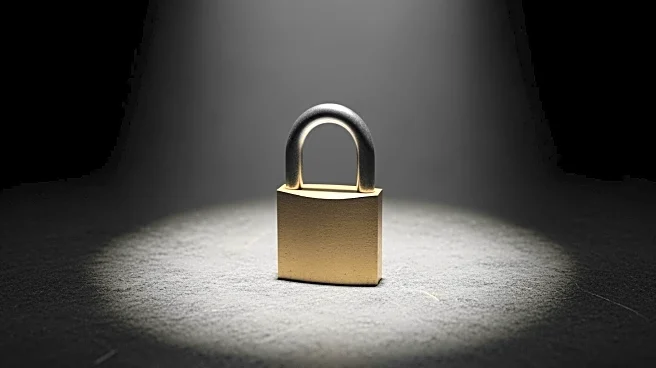What's Happening?
The Work and Pensions Secretary, Pat McFadden, is considering changes to the benefits system for offenders detained in psychiatric hospitals. This follows a meeting with Linda Westcarr, whose daughter
Kennedi Westcarr-Sabaroche was killed by her boyfriend, Gogoa Lois Tape, in Hackney, east London. Tape, who was detained by hospital order last month, was able to claim benefits despite his detention. McFadden expressed his intention to close this loophole, which also allowed another offender, Valdo Calocane, to claim benefits after being detained indefinitely for manslaughter due to diminished responsibility. The meeting was part of a broader call for systematic changes to prioritize victims in the justice system.
Why It's Important?
The potential policy change could significantly impact the benefits system, particularly concerning offenders detained in psychiatric hospitals. If implemented, it would address concerns about the allocation of public funds and ensure that victims' families feel prioritized in the justice system. This move could also influence public perception of government accountability and responsiveness to victims' needs. The proposal for 'Jade's Law,' which would suspend parental responsibility in cases where an offender has killed a partner, further underscores the push for victim-centered reforms. These changes could lead to broader discussions on mental health, criminal justice, and social welfare policies.
What's Next?
The government is expected to respond to the proposed changes, and further meetings with key political figures, including the Prime Minister and the Lord Chancellor, are anticipated. Linda Westcarr has publicly called for these meetings to discuss the failures in her daughter's case and advocate for real change. The outcome of these discussions could lead to legislative proposals or amendments to existing laws, potentially affecting how benefits are distributed and how parental responsibilities are managed in cases of domestic violence.
Beyond the Headlines
The case highlights ethical and legal challenges in balancing mental health issues with criminal accountability. It raises questions about the adequacy of current systems in addressing the needs of victims' families and the societal implications of allowing offenders to receive benefits while detained. The discussions could lead to long-term shifts in how mental health and criminal justice intersect, prompting a reevaluation of policies that govern these areas.










